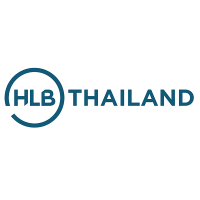
Taxpayers and tax administrators around the world are grappling with the unprecedented impact the COVID-19 pandemic is having on transfer pricing arrangements.
On 18 December 2020, the OECD published the much-awaited “Guidance on the transfer pricing implications of the COVID-19 pandemic”.
The Guidance represents the consensus view of the 137 members of the OECD’s Inclusive Framework on base erosion and profit shifting (BEPS) regarding the application of the arm’s length principle and the OECD Transfer Pricing Guidelines to transfer pricing issues in the context of the COVID-19 pandemic.
To fulfill Thailand’s commitment as a member of the OECD’s Inclusive Framework on BEPS, Thailand introduced legislation effective for accounting periods starting on or after January 1 2019 to codify the arm’s-length principle into Thailand’s Revenue Code. The legislation also introduced mandatory documentation requirements and filing of transfer pricing disclosure forms by certain taxpayers.
Thailand’s transfer pricing laws and regulations are still evolving and the Guidance provides an important and useful reference in addressing transfer pricing issues faced by taxpayers in Thailand affected by the pandemic.
The Guidance is intended to assist taxpayers with reporting the financial periods affected by the pandemic in their transfer pricing documentation and for the tax authorities in evaluating the implementation of taxpayers’ transfer pricing policy or policies on the following critical issues submitted by the members of the Inclusive Framework:
- Comparability analysis;
- Allocation of losses and the allocation of COVID-19 specific costs;
- Government assistance programmes; and
- Advance pricing agreements.
The Guidance also clarifies how the arm’s length principle and the OECD Transfer Pricing Guidelines (“OECD TPG”) apply to issues that may arise due to the COVID-19 crisis and should not be regarded as an expansion or revision of the OECD TPG.
Comparability analysis

The selection of an appropriate comparable company plays a vital role in evaluating the arm’s length analysis of a set transfer price. Due to the pandemic, the global economy’s dynamics (business, markets, industries, and supply chains) have witnessed an unprecedented change, making robust comparability analysis challenging, in particular:
- Lack of comparability – establishing comparability criteria and/or comparability factors; determining whether we are comparing apples with apples or oranges requires careful analysis;
- Lack of comparable financial data;
- Timing of comparability analyses;
- Actual financial results vs. forecasted or budgeted results;
- How appropriate it is to consider loss-making companies as comparable, etc.
The Guidance provides the following pragmatic approaches to tax administrators to minimize disputes with taxpayers:
- The Guidance suggests that both tax authorities and eligible taxpayers exercise due care in exploring the best available market evidence for determining a reliable arm’s length outcome to establish the impact of the pandemic on taxpayers’ businesses, for example, internal or external comparables, and/or changes in the demand and supply factors in their industry;
- In order to compare the taxpayer’s operating profitability against third parties, the tax authorities temporarily could resort to applying a price-testing approach instead of a price-setting approach (preferred by the tax authorities in ordinary business circumstances). The tax authorities could also evaluate the possibilities of alternatives such as MAP (to avoid double taxation), APA, and negotiations to achieve a consensus that could be in all parties’ interests;
- Taxpayers must select the most appropriate transfer pricing model or transfer pricing method out of the five transfer pricing methodologies specified by the OECD to justify the arm’s length nature of the intercompany transaction or intercompany agreements. However, during the pandemic, the Guidance advocates the use of more than one transfer pricing model of transfer pricing methodology (as a corroborative analysis) to justify the arm’s length price of the controlled transaction;
- Analyze and compare the pre and post-pandemic economic impact on the taxpayer and the comparable companies operating in similar economic conditions as long as the comparable companies’ data remain consistent, which does not distort results from pre and post-pandemic period;
- Price adjustment in the subsequent periods – year-end TP adjustments (through invoicing or intercompany payments effectuated in a later period) could be made to satisfy the arm’s length result to the extent permissible by the domestic law. The potential issues such as VAT/Customs should be evaluated separately;
- The Guidance emphasizes undertaking continued comparability of previously selected comparable companies for roll-forward reports or even revisiting the entire set if needed to reflect the economic impact on the industry;
- There is no overriding rule in accepting or rejecting a loss-making company as a comparable. If accurate delineation of the transaction can be made, such companies could be considered a potential comparable even after reporting losses.
Losses and allocation of specific costs
While providing this Guidance, the OECD did not discuss in detail whether a limited risk entity or limited risk entities/arrangements could or should incur losses (including operational and exceptional costs). Instead, it would be dependent on the functions, assets, and risks (FAR) analysis of the limited risk entity on a case-to-case basis. The Guidance emphasized a consistent approach and accurate delineation (based on FAR) pre and post-pandemic in determining the allocation of profits and losses.
The Guidance suggests MNE groups should revisit intercompany arrangements in addressing the pandemic. The revised terms must be consistent with the terms that would have been agreed or revised in an uncontrolled scenario between unrelated parties to reflect the parties best interest along with evidence to support the arm’s length principle.
The allocation of operational and exceptional costs should be based on the FAR and making accounting adjustments to improve comparability.
In addition, the impact of force majeure would purely depend on the language provided in the agreement’s force majeure clauses, and tax authorities should carefully consider it before invoking such measures in light of the controlled transaction’s economic circumstances.
Government assistance programmes

The extent to which the receipt of government assistance during the pandemic comes in different forms may impact TP in various ways. The receipt of government assistance cannot be assumed to impact the price of controlled transactions. A comparability analysis must be performed to account for economically relevant characteristics, government assistance conditions, etc.
The government assistance programmes are unlikely to impact the allocation of risk in the intercompany transactions, although it reduces the negative impact of realizing a specific risk. Moreover, government assistance may affect the comparable and the arm’s length prices of uncontrolled transactions in various ways. The impact of government assistance should be evaluated before accepting a potential comparable.
Advance pricing agreement
Material and unanticipated changes in economic conditions caused by the pandemic have triggered critical assumptions made in the already agreed and concluded APAs. It is critical to assess and determine the impact of such changes in economic circumstances in concluded APAs or APAs under negotiation.
Taxpayers are encouraged to adopt a collaborative and transparent approach by raising pandemic-related issues with the tax authorities promptly.
The Guidance recommends that the tax authorities assess the impact on APAs on a case-to-case basis by providing suitable resolutions such as:
- Revision – of existing APA’s to account for the changes;
- Cancellation – APA’s would be effective until the cancellation date and not for the whole proposed period; and
- Revocation – treat APA’s as never having been entered into.
The Guidance suggests that both taxpayers and tax administrations negotiate APAs to cover FY2020 by adopting a flexible and collaborative approach accounting for current economic conditions. For example, agreeing on a short period APA covering the pandemic period specifically, and another APA covering the post-pandemic period.
Our comments
The Guidance discusses and provides valuable insight in tackling transfer pricing complexities experienced by taxpayers worldwide due to the current crisis and ensuing economic downturn. The Guidance also proposes that tax administrations adopt a flexible approach while evaluating the most appropriate outcome or computing arm’s length price for the pandemic period. In addition, it highlights the importance of alternatives such as MAP (to avoid double taxation), APA, and negotiations to achieve a consensus that could be in all parties’ interests in these challenging times.
The OECD clarified that this Guidance is not intended to expand or revise the existing OECD TPG, nor is it binding on any inclusive framework member. The Guidance merely serves as a guide that provides pragmatic approaches in order to address certain challenges, as there is no straightforward answer to one situation, and every condition/change must be analyzed and assessed on a case-by-case basis in the light of its associated facts and circumstances.
As highlighted in our previous article, “The impact of COVID-19 on your Transfer Pricing Arrangements.”, the OECD in this Guidance emphasized the accurate delineation of FAR analysis to allocate operational and exceptional costs to the companies. This becomes important for Thailand, as most multinationals’ subsidiaries in Thailand operate as low-risk or routine entities, meaning they perform routine functions and assume routine risks compared to the entire value chain. Reasonable care and evidence are required to substantiate the low or loss positions of the low or routine Thai companies, as the Thai Revenue Department would expect a reasonable return on a year-on-year basis.
As the Thai Revenue Department largely follows the OECD, we anticipate that the Thai Revenue Department would consider such practical approaches/examples during TP audit proceedings to address the challenges faced by taxpayers due to the pandemic.
To learn more about the new OECD Guidance, along with the very latest tax treaty developments, join the HLB Global webinar on 27 April, 1pm-2pm BST.




